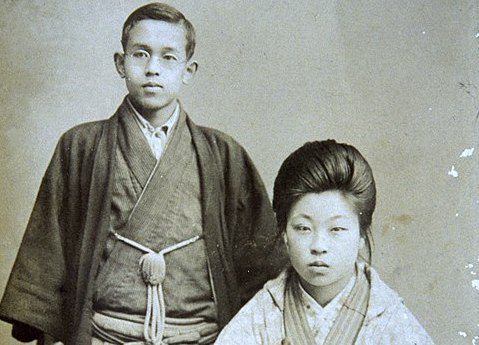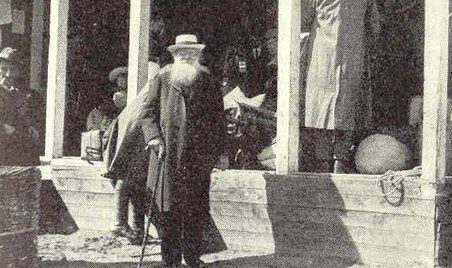Japan poetry and Takuboku Ishikawa (1886-1912): Pyotr Kropotkin
Lee Jay Walker
Modern Tokyo Times

The Japanese poet Takuboku Ishikawa died at a very young age from tuberculosis. He changed his earlier beliefs from naturalism to socialism in response to the environment he witnessed. Therefore, his idealism was still developing and adapting to the convulsions of the Meiji Period (1868-1912).
The Meiji Period (1868-1912) was a period that witnessed Japan copying leading Western and Islamic powers – concerning imperialism and empire (British, French, Ottoman, Persian, and so on). This theme would continue in the Taisho and Showa periods of history until Japan’s defeat in 1945.
However, similar to the British Empire of massive expansion, the reality for the indigenous poor was child slavery to serve industrialization. Indeed, the working classes only got the vote because of the convulsions of World War One and internal political activity. Hence, it seems strange to think that the indigenous poor in the United Kingdom were unable to vote in the early part of the twentieth century – to the Arabs in the land of Mecca, still selling and buying slaves until the early 1960s along with other international realities that seem a million miles away. Therefore, the words “empire,” “colonialism,” “imperialism” – and so forth – hide the reality of mass internal exploitation.
This is the world that Takuboku knew – on the one hand, Japan was expanding its power internally and externally – but on the other hand, the momentum of modernization entailed that vast numbers of people were struggling to survive. Takuboku was one of the multitudes of people struggling. Therefore, his poetry – and thoughts – would focus on liberalizing society internally – rather than on nationalist concepts of expansion and the flag to install pride.
He wrote:
I’ve worked harder than the hardest Yet I am no better off; I only look down at my bony hands.
The Asia Pacific Journal (Japan Focus) says, “Takuboku wrote about the downtrodden because he saw himself as one of them. Life for him, with a wife, daughter and mother to support, was a struggle for bare survival. The lack of job security that plagued Takuboku’s life, the necessity to move from place to place wherever there was work to be had, the anxiety caused by the fact that a person could be shunned for arguing against injustice, the introduction of restrictions on freedoms, the burgeoning oppression of people seen by the government as “radical” …”
The writings of Pyotr Kropotkin influenced Takuboku and other Japanese individuals who questioned many aspects of society. In The Conquest of Bread, Kropotkin says, “In our civilized societies we are rich. Why then are the many poor? Why this painful drudgery for the masses? Why, even to the best paid workman, this uncertainty for the morrow, in the midst of all the wealth inherited from the past, and in spite of the powerful means of production, which could ensure comfort to all, in return for a few hours of daily toil?”

Kropotkin – speaking to his time and continuing in modern times – said, “Everywhere you will find that the wealth of the wealthy springs from the poverty of the poor.”
Throughout his short life, Takuboku was influenced and inspired by many writers. Yet, from an international point of view, the words of Kropotkin reached his heart because of the connectivity of his writings. Therefore, the struggle he faced during his short life concerning work and poverty – meant the words of Kropotkin were literally speaking to him and countless others.
In another article, concerning the artist Yumeji Takehisa (1884-1934), I say, “The execution of his friend, Kōtoku Shusui (1871 – 1911), who played an important role in the socialist and anarchist movements of the day, always remained in his soul. Thus Takehisa – who struggled against poverty during the infancy of his artistic career – felt warmth to the socialist cause and the downtrodden working classes.”
Takuboku and Takehisa – and many others – were shocked by the events of 1910 that ultimately led to the execution of Kōtoku. Hence, the words of Kropotkin rang true to many aspects of the life of Takuboku.
The last years of his life were filled with despair and sadness. Takuboku was rushed to hospital in 1911 – the execution of Kōtoku – and his mother was blighted by tuberculosis while poverty was always a concern. Sadly, his mother and Takuboku would die within one month of each other in 1912 – his mother dying first. Therefore, his life ended in utter despair and tragedy – firstly witnessing the death of his mother and then knowing that soon he would die in the same way.
https://apjjf.org/Roger-Pulvers/4306.html

PLEASE SUPPORT MODERN TOKYO TIMES by DONATING
Modern Tokyo News is part of the Modern Tokyo Times group
DONATIONS to SUPPORT MODERN TOKYO TIMES – please pay PayPal and DONATE to sawakoart@gmail.com
http://moderntokyotimes.com Modern Tokyo Times – International News and Japan News
https://www.pinterest.co.uk/moderntokyotimes/ Modern Tokyo Times is now on PINTEREST
http://sawakoart.com – Sawako Utsumi personal website and Modern Tokyo Times artist
https://moderntokyonews.com Modern Tokyo News – Tokyo News and International News
PLEASE JOIN ON TWITTER
https://twitter.com/MTT_News Modern Tokyo Times